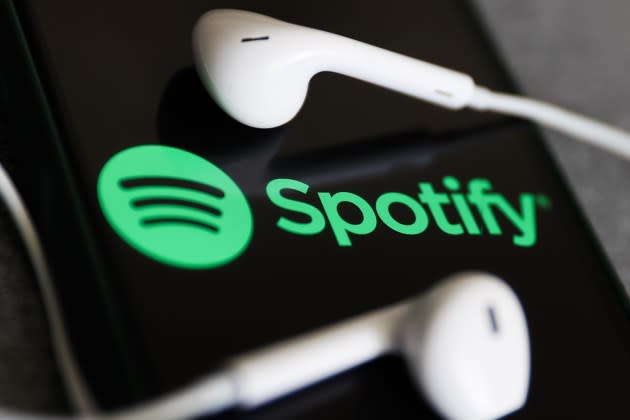Spotify, Songwriters Want You to Succeed. Why Do You Keep Hurting Them? (Guest Column)

Laurent Hubert is CEO of Kobalt Music, one of the world’s largest music publishers. Variety welcomes responsible comment — contact music@variety.com.
As the CEO of Kobalt, the largest organization focused solely on songwriters, I felt that I had to speak out and share the plight of the songwriter vs. Spotify.
More from Variety
Nebula Strikes Deal With Spotify to Stream Video Content (EXCLUSIVE)
Spotify Raises U.S. Prices of Premium Streaming Plans for Second Time in One Year
In the century-plus history of the music business, few companies have generated an impact as profound on our industry as Spotify. After years of contraction caused by dwindling sales and piracy, Spotify’s value proposition and alignment with consumer demand were vital in bringing our industry back from the brink.
Spotify led the transformation of the music industry by changing the business model from one of ownership to a consumption model. This revolution was pivotal in expanding the music industry’s addressable market from a few hundred million buyers to potentially billions of music consumers.
Today, there are over 713 million music subscribers worldwide, according to Midia Research. Last year’s total subscriber base grew by 90 million and it won’t be long until more than a billion people globally subscribe to a music service. Undeniably, Spotify has given artists and songwriters access to global markets, making music more accessible than ever to fans. With that feat, Spotify positively changed the trajectory of our industry and music.
Regrettably, over that same journey, Spotify has gone out of their way to undertake numerous misguided conflicts with songwriters, the most vulnerable constituency in the music ecosystem and the very community of creators without whom Spotify and the music business wouldn’t exist.
In 2018, the company appealed a U.S. Copyright Royalty Board decision — finally granted after many years —which increased the royalty rates paid to songwriters. It eventually lost that battle. Now, in one of the most aggressive moves in its 18-year history, Spotify has added audiobooks to their premium subscription music service and declared it a “bundle”, intentionally depriving songwriters of an estimated $150 million (and growing) per year in royalties.
The company has made other strategic missteps that have weighed on its ability to deliver bottom-line results, such as missing the rise of social media, and losing its influence over music discovery and consumption to the likes of YouTube, TikTok, and others as more and more music continues to be shared on social platforms.
The typical characteristic of a tech business is the promise of mass operational leverage at scale. Considering that Spotify is a business at scale with over $14 billion in annual revenue and a gross margin of approximately $3.5 billion, surely there are further opportunities beyond the recent cost reduction initiatives that would improve the financial picture of the business without having to pursue a path of reducing royalties paid to songwriters. Unbelievably, Spotify is willing to barter all goodwill from the songwriter community and beyond for what amounts to ~1% of its revenue.
Additionally, Spotify’s longstanding reluctance (until very recently) to raise subscription prices — although that rise is not even close to keeping up with inflation — and the costly swing-for-the-fences bet on podcasts, have been a drag on the company’s performance and potential. It is indefensible for songwriters and creators to have to pay the ultimate price for Spotify’s flawed execution. Adding insult to injury, a recent unfortunate post from its Founder & CEO says that the cost of making content is close to zero, giving a clear signal to the creative community that, for Spotify, music is nothing more than a commodity.
We all want Spotify to be successful for the benefit of the entire ecosystem, but it must start with the willingness to build a mutually beneficial relationship that respects and understands the value songwriters bring to Spotify and our world.
Best of Variety
New Movies to Watch This Week: 'Jockey,' 'The Lost Daughter'
Final Oscar Predictions: Who Will Win in the Major Categories?
Sign up for Variety’s Newsletter. For the latest news, follow us on Facebook, Twitter, and Instagram.

